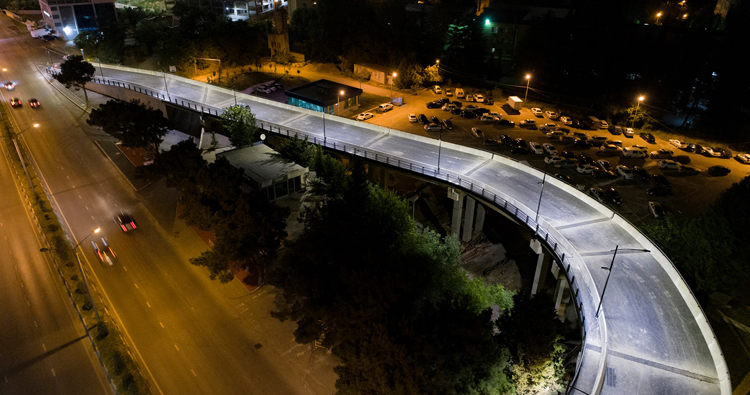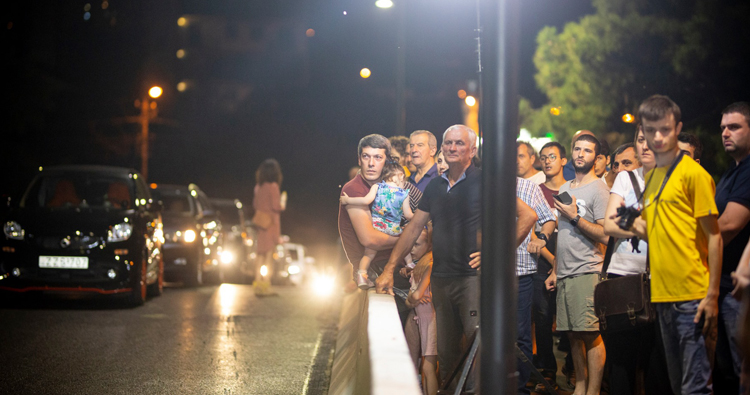New overpass to offload road traffic at the entrance of Tbilisi

The overpass starts from Sarajishvili Street, passes over Marshal Gelovani Avenue and joins the same avenue in the direction of Mtskheta. Photo: Tbilisi City Hall.
Construction of a two-lane overpass at the entrance to the Georgian capital of Tbilisi is completed, announces Tbilisi City Hall.
The overpass stretches 246 meters, has two lanes and is eight meters wide – it starts from Sarajishvili Street, passes over Marshal Gelovani Avenue and joins the same avenue in the direction of Mtskheta.
Tbilisi Mayor Kakha Kaladze who opened the new overpass on June 23 said that the project aims to decrease traffic congestion in the Vashlijvari settlement and will increase the flow of traffic between Dighomi and Saburtalo districts. Furthermore, vehicles will be able to move freely through Vashlijvari from Nutsubidze plateaus to Dighomi and vice versa.
This location had a serious problem in terms of traffic congestion. Now as the project is implemented the traffic will be reduced at this intersection,” said Kaladze.
 Residents of Tbilisi also attended the overpass opening ceremony. Photo: Tbilisi City Hall.
Residents of Tbilisi also attended the overpass opening ceremony. Photo: Tbilisi City Hall.
Kaladze said that the construction of the new node started last year but the project timeline was extended as the initial project “was problematic since it envisaged destroying the surrounding green area”.
This is categorically unacceptable to us. Consequently, the project was changed and implemented in a way that maintained the green space and caused minimal interference to the surrounding area”, Kaladze said.
For instance, as part of the initial project, 47 large and 198 small trees were to be cut down, whereas, within the amended project, 17 trees/plants were cut down and 27 were replanted. Furthermore, 140 plants/trees were planted in order to compensate for the green area.
In two weeks, road lines will be painted, plants will be planted and stairs and elevators will be constructed for pedestrians.
About 5 million GEL (about $1.80m/€1.58m) was spent from the Tbilisi budget in order to carry out the project.
 Tweet
Tweet  Share
Share